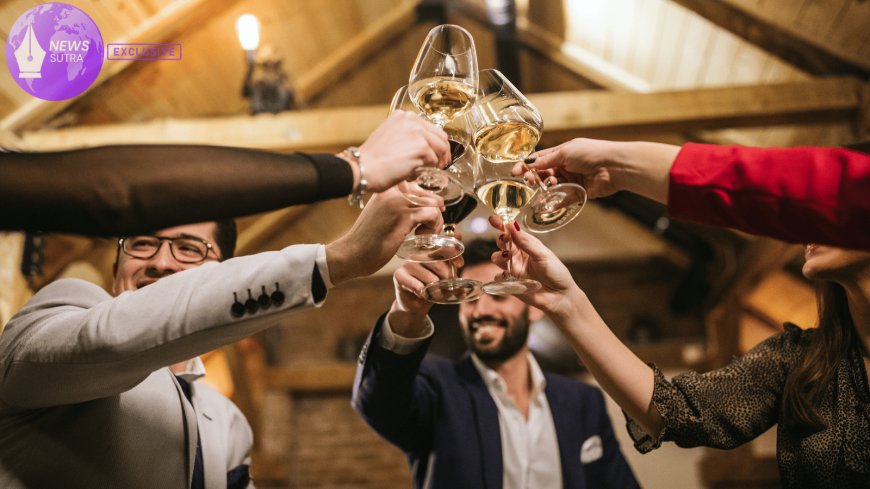Celebrity Reunions and the Psychology Behind Them: What Experts Reveal About America’s Fascination
Celebrity reunions like Jessica Simpson’s high-profile relationships reveal deep psychological insights. Therapists explain why America is captivated by second chances in love and what these reunions say about cultural trends.

Every few months, headlines erupt with news of celebrity reunions—once-broken relationships rekindled under the glare of the public eye. From high-profile reconciliations like Jessica Simpson and Nick Lachey’s brief interactions years after their split, to more recent rumors of former celebrity couples reconnecting, the fascination is not merely about star power. Relationship experts say these reunions reflect deep psychological currents—both in the celebrities themselves and in the society that watches them.
Far from tabloid gossip, understanding celebrity reunions provides a lens into how Americans view second chances, attachment styles, and even collective nostalgia.
Why Celebrity Reunions Captivate the Public
According to Dr. Elaine Foster, a licensed marriage and family therapist based in Chicago, audiences project their own hopes and disappointments onto celebrity relationships.
“When people see a famous couple reunite, it feels like watching a familiar story get rewritten. It taps into our own questions—did I give up too soon? Could love return if circumstances changed?”
A 2024 survey by the American Psychological Association found that nearly 62% of Americans admitted following stories of celebrity breakups and reunions, not out of pure curiosity, but because it made them reflect on their own lives and choices.
This explains why stories like Ben Affleck and Jennifer Lopez’s reunion after nearly two decades gripped audiences far beyond entertainment news cycles. The reunion was not just about two celebrities—it symbolized resilience, renewal, and the idea that love could endure against the odds.
Case Study: The Jessica Simpson Effect
Jessica Simpson, whose early-2000s marriage and divorce with Nick Lachey was one of reality TV’s most-watched relationships, offers a telling example. Though the two have not reunited romantically, periodic reports of friendly interactions spark waves of commentary.
Therapist Dr. Robert Hayes, who has consulted with couples navigating high-profile breakups, explains:
“In the public imagination, Jessica and Nick represented young love and vulnerability. Their eventual split was almost mourned collectively. So whenever they reappear together in any context, even briefly, it reignites that emotional memory.”
Psychologists note this effect is part nostalgia, part projection. Fans grew up watching these couples, and seeing them again feels like a chance to revisit their own pasts with a different ending.
The Psychology of Reuniting: Expert Insights
Celebrity reunions often mirror the dynamics seen in everyday couples, only magnified by fame. Experts point to several psychological drivers:
-
Attachment Patterns: People with anxious attachment styles often find reunions comforting, even if the relationship was turbulent.
-
Narrative Closure: Both celebrities and fans seek resolution; a reunion can feel like rewriting a chapter left unfinished.
-
Social Validation: Celebrities may feel pressure to reunite because of audience expectations, just as ordinary couples may reconcile under family or community pressure.
-
Nostalgia and Familiarity: Returning to a former partner can feel safer than starting anew, particularly under the scrutiny of fame.
According to Psychology Today (source), nearly 40% of former couples in the U.S. report attempting reconciliation at least once—a statistic that underscores why celebrity reunions resonate so strongly.
Beyond the Tabloids: Cultural Meaning
Relationship experts emphasize that the public’s interest is not about voyeurism alone. Instead, it reflects cultural attitudes toward forgiveness and resilience.
Dr. Marissa Cole, a New York-based clinical psychologist, notes:
“In a polarized society where so much feels fractured, the idea of reconciliation—whether between politicians, families, or celebrities—feels like hope. These stories are about more than romance. They’re about whether people can change, whether second chances are possible.”
This is why celebrity reunions often trend far beyond entertainment media, spilling into cultural commentary and even think pieces in outlets like The Atlantic and The New Yorker. They touch on themes of redemption that resonate across American life.
Risks Behind the Glamour
But experts also warn against romanticizing reunions. While public narratives frame them as fairy tales, therapists stress that not all reconciliations are healthy.
Dr. Hayes adds:
“For every successful reunion, there are countless cases where people return to dysfunctional dynamics, mistaking familiarity for growth. Celebrities are not immune to this. If anything, the pressure of fame makes unhealthy reunions harder to leave.”
This tension explains why some celebrity reunions flame out quickly. Without addressing underlying issues—such as communication breakdowns or conflicting life goals—the cycle of breakup and reunion can repeat.
A Mirror for Broader U.S. Trends
In many ways, celebrity reunions reflect broader American patterns in relationships. The U.S. Census Bureau reports that remarriages and reconciliations remain common, with nearly 25% of divorced couples remarrying each other at some point.
Experts say the fascination with celebrity reunions may therefore be less about fame than about cultural self-reflection. In seeing public figures navigate second chances, Americans see both the risks and the hope of doing the same in their own lives.
What's Your Reaction?
 Like
0
Like
0
 Dislike
0
Dislike
0
 Love
0
Love
0
 Funny
0
Funny
0
 Angry
0
Angry
0
 Sad
0
Sad
0
 Wow
0
Wow
0








































































